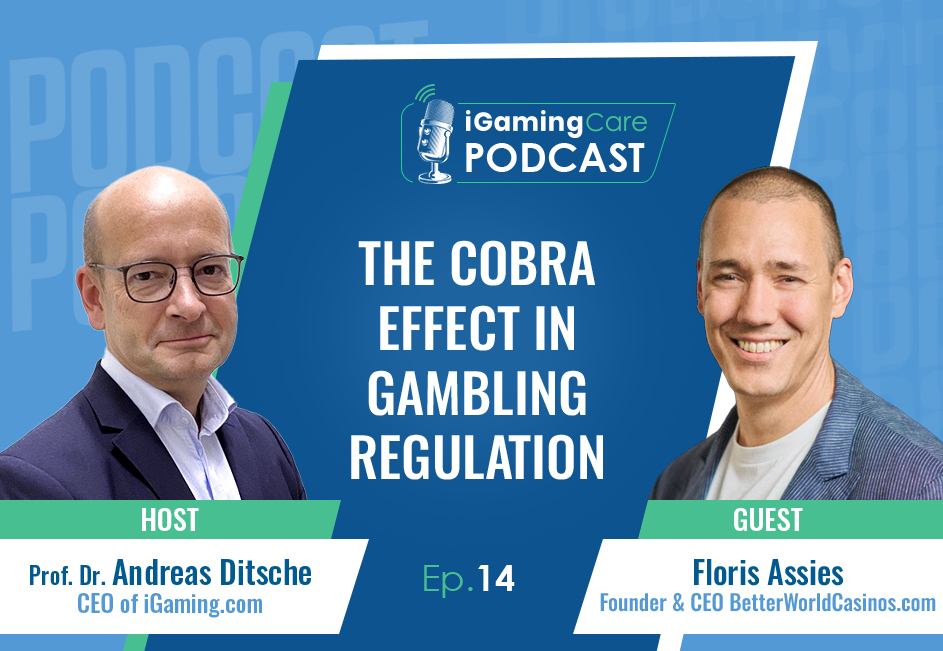
The Cobra Effect in Gambling: When Regulation Backfires

Ever heard of the Cobra Effect? It’s when a solution meant to fix a problem ends up making it worse due to unintended consequences.
Prof. Dr. Andreas Ditsche, CEO of iGaming.com and primary contributor to iGamingCare, uses this analogy to describe the unforeseen outcomes of overregulation in gambling.
Overreach in Regulation Doesn’t Equal Safer Gambling
In the short video above, Prof. Dr. Ditsche and Floris Assies, Founder & CEO of BetterWorldCasinos.com, both agree that severe restrictions don’t always create a safer оr more sustainable gambling environment.
On the contrary, overregulation (e.g., monthly deposit limits, stake limits, etc.) has been proven to have adverse consequences in countries such as Germany, where the channelization rate is at an all-time low.
Setting excessive barriers won’t stop players from gambling. They’ll find a workaround, even if this means signing up with unlicensed operators on the black market.
“And I think by making the obstacle too high, you cannot stop people. They will find a way.”
Prof. Dr. Andreas Ditsche, CEO of iGaming.com
What’s the Right Strategy?
Regulation must strike a balance. Nuanced and fair rules should be needed to ensure a well-controlled environment attractive enough for players to stay in the legal market. Highly restrictive legal frameworks without any flexibility can produce the opposite of what’s intended.
Every licensed operator should offer responsible gambling tools, such as deposit and time limits. However, these practices shouldn’t become a barrier for players to overcome.
Listen to the latest episode of the iGamingCare podcast for the whole discussion between Prof. Dr. Ditsche and Floris Assies. Gain more expert insights, and don’t hesitate to share your thoughts and comments.

